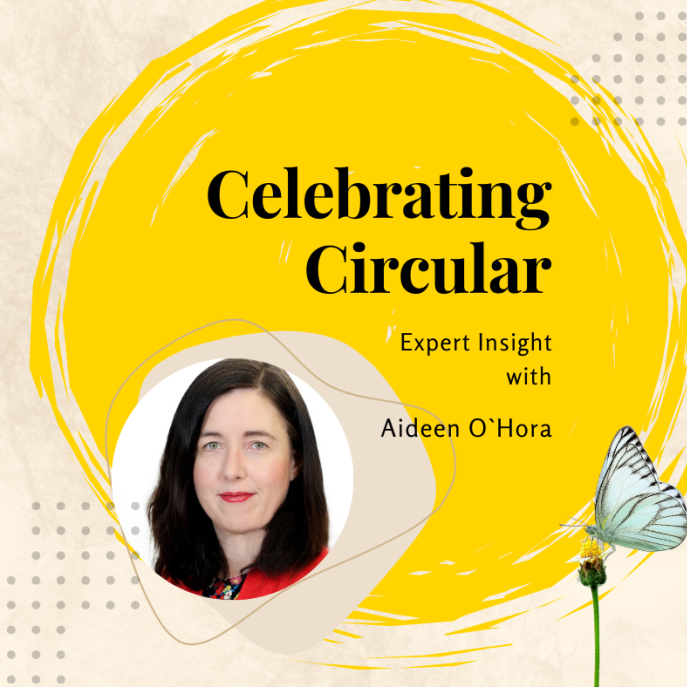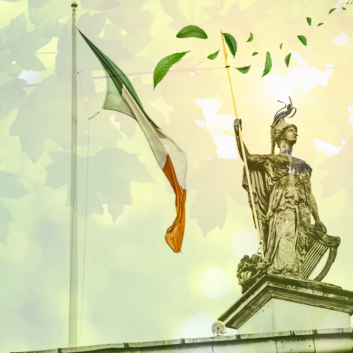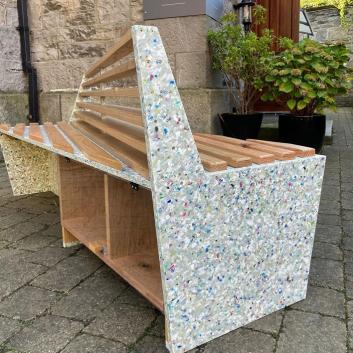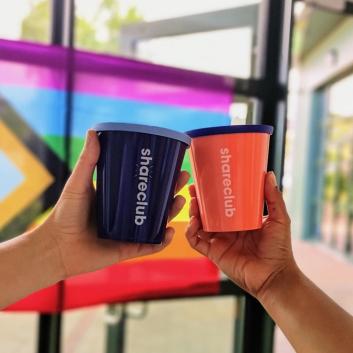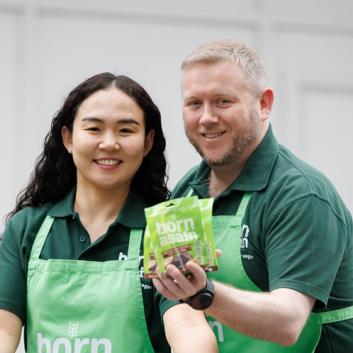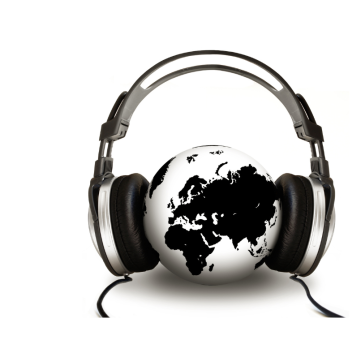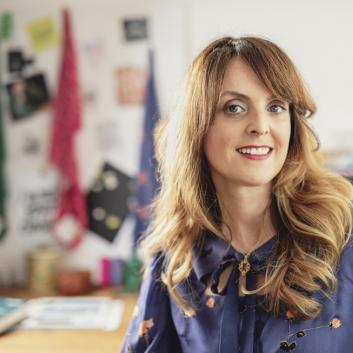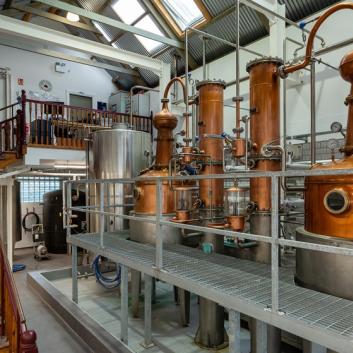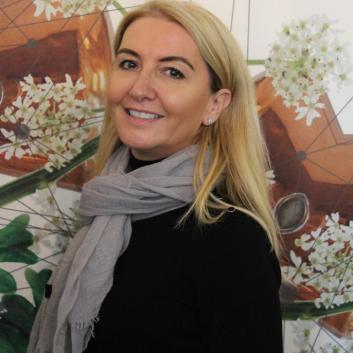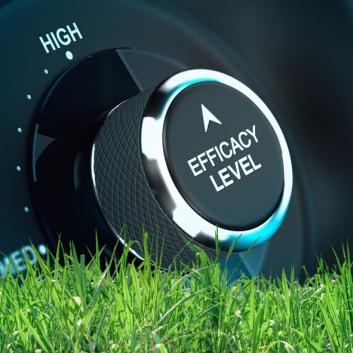“Without denying the challenges, we need to balance climate issues with a positive attitude”
This article is part of the 'Celebrating Circular` initiative and story collection that spotlights trailblazer Irish businesses making strides towards a more sustainable and low-carbon economy.
It aims to highlight the encouraging achievements of companies that participated in the MODOS circular economy training provided by Local Authorities to local businesses and supported by the Regional Waste Management Planning Offices and Dublin City Council.
Expert Insight
An environmental scientist at heart, over her career, Aideen O’Hora has created national programmes to inform policy and drive progress on corporate sustainability. She continues to contribute to game-changer projects.
As a Partner and Co-Founder of Sustainability Works, a consultancy firm offering practical solutions across sustainability strategy, finance, innovation, communications and reporting, she draws on her diverse expertise working in the public and private sectors.
She was one of the first experts to get involved with creating the MODOS programme, working on modules and managing processes as a coordinator to ensure continuity and consistency while polishing the content to make it more specific over time.
making a circular economy business course appealing
Besides gathering experts to deliver the training and develop the curriculum, they also had to work on a proposition to make the MODOS programme appealing to businesses.
“Although the term circular economy is relatively new, the concept has been around for a while, so my approach is to get businesses to relate to what is already there.
The reality is that companies are already doing some elements of sustainability, so the most important strategic approach for me is connecting the dots.”
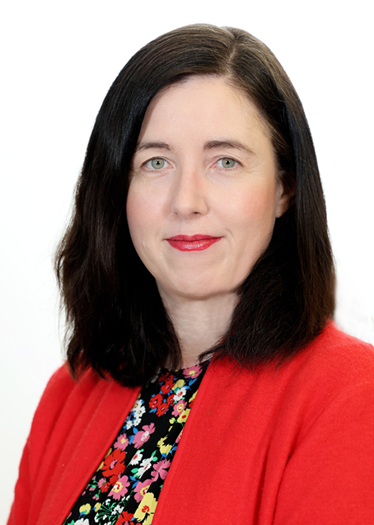
Looking at the circular economy as a whole might be too much to take on. Still, considering access to raw materials and the increasing cost of materials as a real business risk gives you a better entry point for integrating sustainability, as Aideen explains.
“The raw material challenge is more on the radar for bigger companies now, and closed-loop systems are making more business sense. This might not be because of environmental motives, but it doesn`t really matter in terms of impact. We take what we can to drive changes.”
Regarding the MODOS training, Aideen says the key to designing the programme was making it practical and having smaller cohorts that allow everyone to participate and learn from each other.
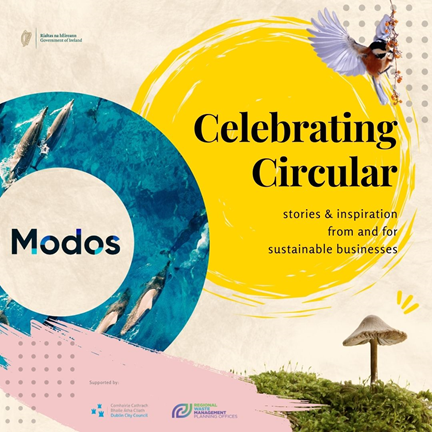
Learn more about the Celebrating Circular initiative!
The 'Celebrating Circular` digital publication and online story collection spotlight trailblazer Irish businesses making strides towards a more sustainable and low-carbon economy.
Download the digital publication unveiling stories of changemakers and expert insights!
The need for a ‘can-do’ attitude
They realised that participants might not use the “sustainability lingo”, but in reality, they are implementing many things, and sharing their experiences is invaluable in the learning process.
“This is the part when you see things applied, making you believe that it can be done, so we wanted to give space to embrace the power of peer learning.”
This ‘can-do’ attitude reflects Aideen's fundamental belief that we can solve the climate challenge despite the many obstacles we need to face.
“There are opportunities in this. Without denying the challenges, we need to balance climate issues with a positive attitude.”
Working with climate-tech companies is one of the sources that keeps her hopeful.
“I got to work on the Climate-KIC accelerator programme in Ireland that supports tech-focused climate solutions.
This is where you get to see that on one side of the equation, you have those challenges, and on the other side, you have inspirational and clever solutions driven by enthusiastic entrepreneurs.”
Contributing to society in a positive way
The question Aideen keeps asking herself, “How can I facilitate and help those with brilliant, innovative solutions to succeed?”
Contributing to society in a positive way has always been an inner drive for her, and she seeks that in every project she is involved in.
Besides working with entrepreneurs, Aideen sees empowering communities as another way to scale solutions.
She emphasises that once you make people understand the benefits and inspire action, it can become an energy exchange that spirals into a bigger change.
One of the projects she is most proud of was working on an Sustainable Energy Authority of Ireland (SEAI) initiative aimed at empowering and enabling communities to adopt sustainable practices.
Starting from one community, they managed to build up around 600 communities across Ireland, which she recalls as an experience like watching an oak tree grow from a single acorn.
Collaboration being the heart of making change happen
Aideen adds that collaboration is at the heart of making change happen: “We cannot achieve net zero goals by working in silos. We need to look at opportunities to partner up and collaborate to bring out synergies.”
She says this thinking was also crucial in their work with the MODOS course.
“MODOS is not only a course for participants but also a template for multistakeholder collaboration that could set a precedent for what this could look like and how to harness the benefits of having various organisations work towards a common goal.”
Looking at CSRD as a change management tool
Aideen’s take on the recently adopted Corporate Sustainability Reporting Directive (CSRD) EU initiative, which requires companies to report on the impact of corporate activities on the environment and society and audit the information they provide, reflects on her approach to spotting opportunities where others might only find challenges.
“I see CSRD as actually forcing change. If you step back from the obligatory part, you can see this as an incredibly transparent, supercharged risk assessment of environmental and social issues that can help us identify hotspots of opportunities and challenges alike. Based on the data, picking the areas that can make a difference would be possible.”
She further explains that once you get through the pain piece of reporting, CSRD could be used as a change management tool, allowing leaders to allocate capital towards hotspots with the highest potential to have a ripple effect on achieving net zero and other goals.






